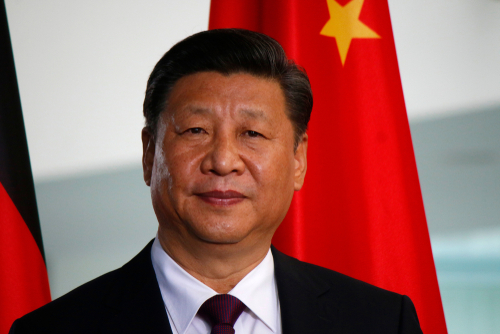|
|
Chinese President Xi Jinping on Thursday said in a virtual meeting with fellow BRICS members that the “Cold War” mentality should be rejected by the international community in what was clearly a shot at the U.S.
Xi addressed leaders from the group, which was founded in 2009 and includes Brazil, Russia, India, China, and South Africa. The Ukraine War and sanctions was one of the key points during his discussion. While the West turned its back on Russia, these countries grew closer and saw that the West is no longer needed for economic stability.
Xi criticized what he sees as a pervasive Cold War mentality and the abuse of sanctions. He called on countries to “reject the small circles built around hegemonism by forming one big family belonging to a community with a shared future for humanity.”
“The Ukraine crisis has, again, sounded the alarm for humanity. Countries will surely end up in security hardships if they place blind faith in their positions of strength, expand military alliances, and seek their own safety at the expense of others,” he said.
When it comes to Ukraine, China has recognized Russia’s security concern over an expanding NATO and called for an end to the conflict. But Beijing has been happy to reap the benefits of cheaper energy sales from Russia and upped its trade by nearly 29 percent from a year ago.
The Trends Journal has reported on the rivalry between the U.S. and China and how President Joe Biden has made competing with China one of his top foreign policy initiatives. This is not the first time that China blamed Washington for maintaining a “Cold-War Mentality” when it comes to foreign policy.
Shortly after the U.S. announced its AUKUS security pact with Australia and the United Kingdom in September 2021, Zhao Lijian, the Chinese foreign ministry spokesman, said the deal could damage “regional peace” and intensify an arms race.
The U.S. and U.K. say China is far from a benevolent nation and has big military plans of its own. Ben Wallace, the U.K. defense secretary, said China is about to embark on one of “the biggest military spends in history.”
Russian President Vladimir Putin also addressed the virtual meeting and, like Xi, blamed the “actions of certain states” for the deteriorating economic conditions for many countries.
“This crisis situation that has shaped the global economy [is] caused by the thoughtless and selfish actions of certain states who, using financial mechanisms, essentially shift the blame for their own mistakes in the macroeconomic policy to the entire world,” he said.
Business Insider reported that meeting was evidence that Putin maintains close allies despite the invasion and isolation by the West. The video conference was pre-recorded and not one leader mentioned the Ukraine war.
Putin told the conference that trade from Russia to BRICS countries increased by 38 percent since the outbreak of the war and it has been “redirecting” its energy flows.
“Western partners neglect the basic principles of market economy, free trade, and inviolability of private property,” Putin said.
Putin also mentioned that the group of countries will begin to make its own currency away from the U.S. dollar.
“The matter of creating the international reserve currency based on the basket of currencies of our countries is under review,” Putin said. “We are ready to openly work with all fair partners.”
TRENDPOST: Thus far, Russia has managed the sanctions leveled by Western countries far better than the countries which first imposed them.
Robert Habeck, Germany’s economy minister, told reporters on Thursday that Russia’s decision to cut energy supplies to Berlin can lead to “a Lehman effect in the energy system.”
Habeck told a news conference that he raised the country’s gas risk level to the “alarm” phase, which Bloomberg said is the second-highest alert.
“Gas is now a scarce commodity in Germany,” he said. The next phase is gas rationing.
TRENDS FORECAST: The longer the Ukraine War drags on, the more pressure Western leaders will face from their own citizens over soaring energy costs.
European countries are rushing to get their storage facilities to about 90 percent by November. They are at about 55 percent capacity now.
Christine Lagarde, the European Central Bank president, announced Monday that the risks to financial stability in Europe have “perceptibly increased” since January.
“While the correction in asset prices has so far been orderly, the risk of a further and possibly abrupt fall in asset prices remains severe,” she said.
As the reality sets in that there will not be enough natural gas this coming winter, following more Russian supply cuts, European natural gas prices rose again yesterday.
Since June 10, the gas price at the Dutch TTF hub, the benchmark for Europe, has surged by 55 percent. After spiking 9.1 percent last week, yesterday, Dutch gas futures moved up another 0.7 percent.
Therefore, as we note, the more NATO and the U.S. impose sanctions on Russia and the more they do to keep the Ukraine War going, the higher gas and oil prices will rise and so too will Dragflation: Dragging down GDPs into negative territory as inflation keeps rising.

